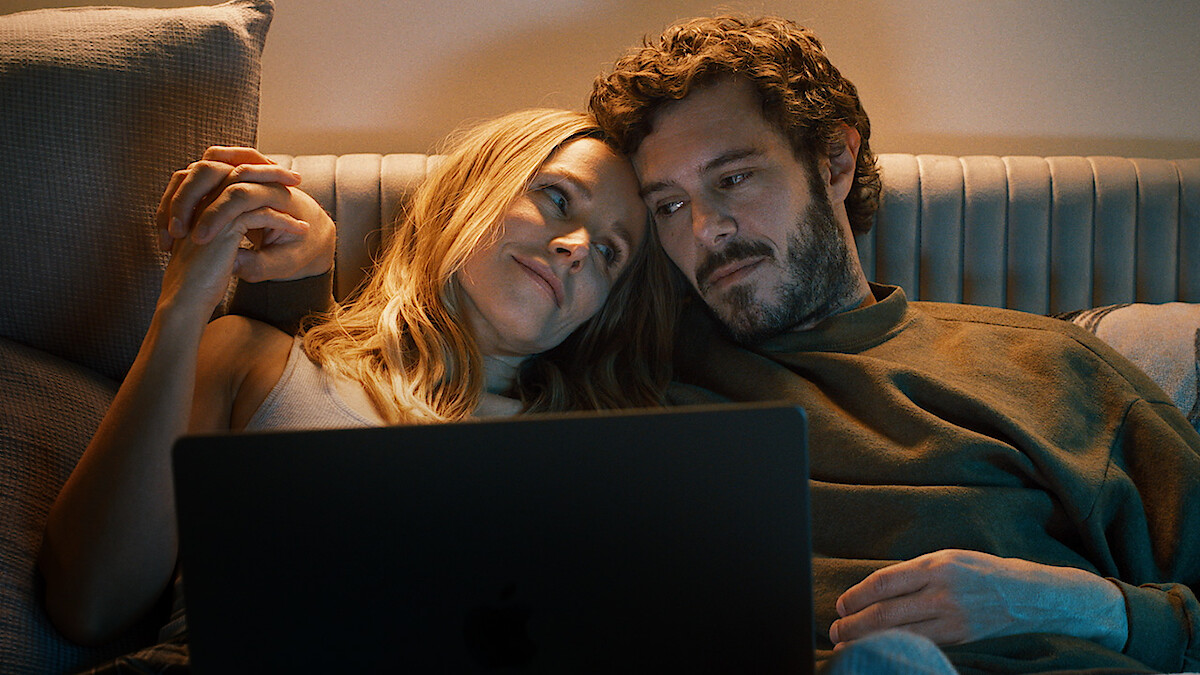I had high hopes for Netflix’s new series, “Nobody Wants This,” a show featuring a rabbi as the main character and a plot deeply rooted in Judaism. This seemed like an amazing substitute for the typical extraneous Jewish character added to check the diversity box. However, while it is a compelling idea, the execution left much to be desired.
“Nobody Wants This” follows the story of a sex podcaster, Joanne, played by Kristen Bell, and rabbi, Noah, played by Adam Brody, who fall in love, despite their extremely different lives and beliefs. This unlikely relationship is put to the test by their opinionated family members, the Jewish community and their religious difference.
The way in which these family members were portrayed was the core of my issue with the show, specifically the portrayal of Jewish women in Noah’s family. Their depiction fuels stereotypes of Jewish women being mean-spirited and overbearing. When Joanne meets Noah’s family for the first time his mother, Bina, and his sister-in-law, Esther, are very cold towards Joanne and insist on her not being allowed into the family. It is no wonder that Joanne wouldn’t want to convert, given her models for how Jewish women act.
The show has received a great amount of backlash surrounding this issue, yet series creator Erin Foster has responded saying that the show’s goal is to “shed a positive light on Jewish culture.” How is painting Jewish women as domineering and manipulative monsters in any way achieving this goal? If anything, it is doing the opposite. Especially with antisemitism on the rise, it is extremely important that TV shows don’t stereotype Jewish people, otherwise they are just perpetuating these issues.
However, the issue was not just with the portrayal of Jewish women, rather the negative portrayal of women as a whole. For example, Joanne’s mother, Lynn, is bonkers and out of touch with reality and her older sister, Morgan, is selfish and untrustworthy, only exacerbating the show’s image of women.
Despite Rabbi Noah being somewhat unconventional, the show does a nice job of teaching the audience about less commonly known Jewish practices such as Havdalah and the rules for observing the Sabbath. At times though, the references to Jewish concepts and phrases felt forced and mentioned just for the sake of proving a point that Noah is a rabbi.
For example, Joanne frequently refers to Noah as “rabbi” but most rabbis’ partners would just refer to them as their first name. Additionally, when Esther and her husband, Sasha, leave his parent’s house, Esther calls Sasha to remind him not to forget the rugelach. Even though these details are very small, at times it makes interactions between characters seem overproduced.
While the show had many disappointing factors, Bell and Brody were perfect choices for their characters. Their chemistry and character development is palpable. The plot is very interesting and adds a Jewish spin on the typical “forbidden-love” romantic comedy trope. It is definitely unrealistic that a rabbi would give up his position for a non-Jewish wife, but the storyline shed light on an interesting issue in Judaism.
Overall, despite the interesting plot, the portrayal of women was the ultimate letdown of “Nobody Wants This.” This show had the potential to be a beautiful portrayal of Jewish culture and acceptance, however unfortunately it just perpetuated negative stereotypes about Jewish women. Therefore, I don’t necessarily think that it is worth the watch.














